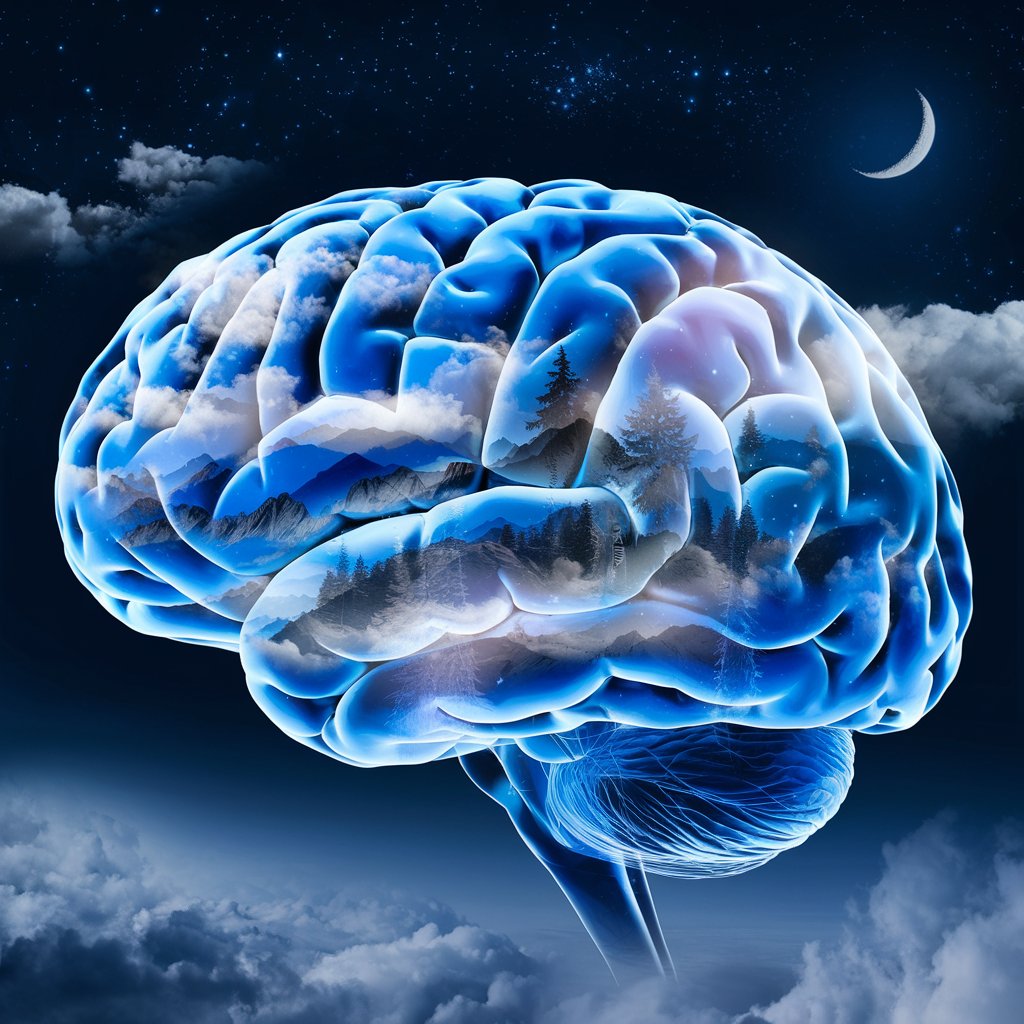Have you ever walked into a room and felt like you’ve been there before, even though you know you haven’t? Or maybe you’ve had a conversation that felt eerily familiar, as if it had already happened. This strange sensation is called déjà vu, and it’s one of the most mysterious tricks your brain can play on you.
One theory suggests that this happens when your brain processes new information. It processes it in short-term memory but wrongly marks it as long-term memory. This mismatch makes your experience feel unknown. Other studies show slight, harmless delays in how the brain sends and gets signals. This can make it feel like your mind is struggling to keep up with itself. While déjà vu is common and usually harmless, it remains a phenomenon that’s not fully understood.
Déjà vu may be more than just a weird mental hiccup—it could offer insight into how our memory works. It tends to occur more frequently in younger individuals and those who are mentally engaged. It can be triggered by stress, fatigue, or specific environments. Some researchers link déjà vu to the brain’s process of checking for memory errors. It acts like a built-in quality control. Science is still looking for solid answers. Yet, one thing is clear: this brief moment of familiarity shows how complex and mysterious the Human Brain is.
But what exactly is déjà vu, and why does it happen? Let’s dive into the science behind this fascinating phenomenon.
What Is Déjà Vu?
Déjà vu is a French term that means “already seen.” It’s that odd feeling of having lived a moment before, even though you know you haven’t. Whether it’s a conversation, a place, or even a specific sequence of events, déjà vu can catch you off guard. It feels like a memory being replayed in real time, even though it’s happening for the first time.
Surprisingly, between 60 and 70 percent of people report having experienced déjà vu at least once in their lives. It mainly affects people aged 15 to 25. It occurs more when they are under a lot of stress, fatigue, or intense concentration. Déjà vu may seem mysterious or even supernatural. However, it’s not a psychic event. It’s a standard way your brain processes and stores information.
The scientific explanation? It’s all about memory processing and perception. Déjà vu may occur when your brain temporarily combines long-term and short-term memories. To put it another way, your brain confuses a new experience with a familiar one. Another idea is about the temporal lobe. It’s the part of your brain that deals with recognition and memory. A slight mistake can make you feel strangely familiar, even if nothing else does.

Why Does Déjà Vu Happen?
Scientists have been studying déjà vu for decades, and while they don’t have all the answers, they’ve come up with some compelling theories. Here are the most popular explanations:
1. Memory Misfire
One theory suggests that déjà vu happens when your brain accidentally sends a new experience to the part of your memory that stores old memories. This makes you feel like the experience is familiar, even though it’s brand new.
Think of it like a filing error in your brain. Instead of putting a new memory in the “current events” folder, it accidentally drops it into the “past experiences” folder.
2. Split-Second Delay
Another theory is that déjà vu occurs when your brain processes the same information twice, but with a tiny delay. For example, one part of your brain might process what you’re seeing a fraction of a second before the other part. This creates the illusion that you’ve experienced it before.
3. Dream Recall
Some researchers believe déjà vu might be linked to dreams. Have you ever had a dream about a place or situation that later happens in real life? Déjà vu could be your brain recalling a forgotten dream and mistaking it for a real memory.

Who Experiences Déjà Vu?
Déjà vu is surprisingly common, but it doesn’t affect everyone the same way. Most people who experience this are between 15 and 25 years old. Younger brains are making new connections and learning fast. This can make them more likely to experience this mental glitch.
You’re also more likely to experience déjà vu if you:
- Are between the ages of 15 and 25.
- Travel frequently or experience new environments often.
- Have a vivid imagination or tend to daydream
- Are tired or stressed, which can make the brain more prone to errors.
These situations can make your brain more aware or confused. This can cause moments of misfired memory, also known as déjà vu.
Just before they have a seizure, people with epilepsy from the temporal lobe frequently experience déjà vu. Researchers believe that déjà vu and the temporal lobe may be closely related. This area of the brain is responsible for controlling memory, recognition, and familiarity. Even people without epilepsy can feel a strange sense of déjà vu. A quick glitch in this brain area causes that sensation.

Is This a Bad Sign?
In most cases, déjà vu is entirely harmless. It’s just a quick glitch in the brain’s memory. Your mind mixes up the present with something that seems familiar. Usually, these events are brief, lasting just a few seconds. They don’t signal anything serious.
Frequent or intense déjà vu might signal a serious issue. This is especially true if there’s confusion, memory loss, or other odd symptoms. It’s primarily linked to temporal lobe epilepsy. In this case, déjà vu might be an early warning sign of a seizure. It can also appear in people with brain conditions that impact memory and thinking.
If you often experience déjà vu and it distracts you, makes you anxious, or causes you to lose track of time, consult a doctor. It’s usually not a concern, but it’s smart to check for any neurological problems.

Fun Facts
- In French, “déjà vu” implies “already seen.” It was first used in 1876 by French psychologist Émile Boirac. He used it to describe a strange feeling of familiarity.
- There’s a fascinating term called “jamais vu.” It means “never seen.” It’s the opposite of déjà vu. With that, you see something familiar, like a word or place. But it feels strange and new.
- Some people believe that it originates in the brain. Some think it reveals hints of parallel universes, past lives, or different timelines. These theories are worth exploring. However, there is no scientific evidence to support them.
- This happens more often than you might think. Around 60–70% of people say they’ve felt it at least once. It’s especially common during the teen and young adult years.
- Studies show that ithappens more often when you’re tired, stressed, or overwhelmed. These feelings can make your brain more likely to have memory glitches.

Why Does Déjà Vu Fascinate Us?
Déjà vu taps into something deeply human—our desire to understand how the mind works. It’s sudden and mysterious. It often gives us an emotional jolt that grabs our attention. This brief sense of familiarity prompts us to reevaluate our understanding of memory, time, and reality. It’s more than a brain glitch. It demonstrates how perception and consciousness function.
What makes déjà vu so captivating is that we all experience it, but we can’t fully explain it. Is it a memory misfire? A brain hiccup? Or something more profound? Even scientists don’t have all the answers, which only adds to its intrigue. Some researchers believe it enhances our brain’s functioning. It tests and adjusts memory systems in real-time.
So, the next time you get that strange “I’ve been here before” sensation, don’t just brush it off. Take a moment to reflect on the remarkable capabilities of the human brain. Déjà vu is a mystery, but it reminds us of the wondrous workings of our minds. We still have much to learn.

Final Note
Curious about what else your brain might be hiding? Déjà vu is just one example of the strange and powerful capabilities of our minds. At Crafty Facts, we love diving into the mysteries of memory, perception, and human behavior. There’s always something new to discover. Dive into the science of your thoughts or have fun with quirky psychology.
If you enjoy fun psychology questions or brain tricks, check out our blog. It offers exciting insights into how your mind works. Stay curious, explore, and learn more. Gaining knowledge about your brain may change your perspective on the world.


